From December 9th to the 13th the central lobby of the rectorate of Sofia University St. Kliment Ohridski is hosting a photo exhibition – History of the Bulgarian polar base St. Kliment Ohridski. The exhibition showcases the development of the Bulgarian base on Livingstone Island in Antarctica since it was set up in 1988 down to our day.
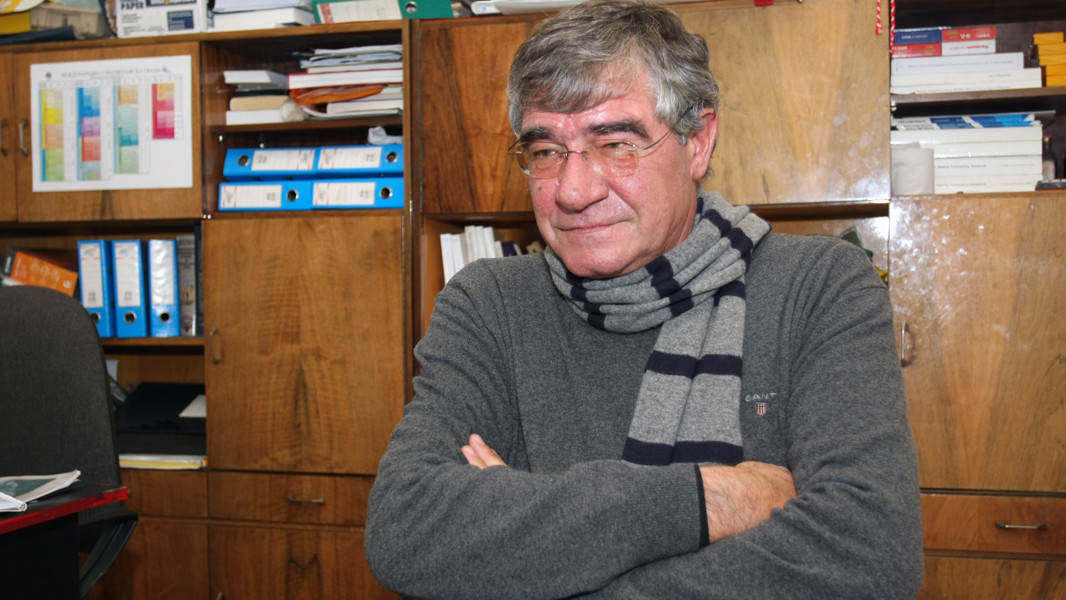
“Our Bulgarian Antarctic research work has gone down in Bulgaria’s most modern history, as it was launched way back, in the 20th century – in 1987-1988, during the first Antarctic expedition when two small houses were put up on Livingstone Island,” says the chairman of the Bulgarian Polar expeditions Prof. Christo Pimpirev.
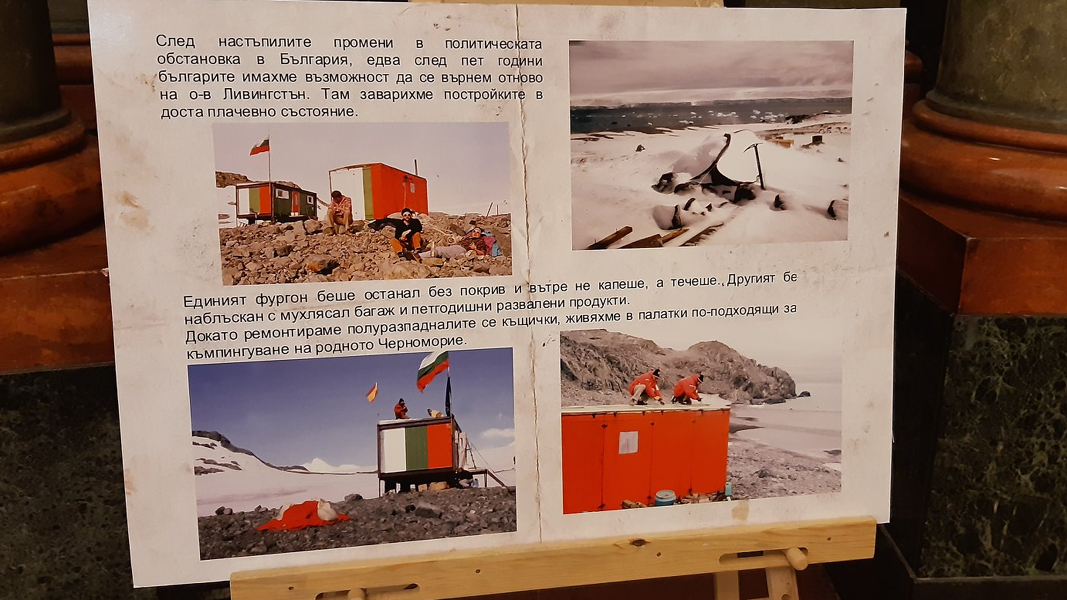
The photos from the exhibition - History of the Bulgarian polar base St. Kliment Ohridski – trace the development of the Bulgarian base from two small houses to seven solid buildings. One of them is the first Christian Orthodox church in Antarctica, the St. Ivan of Rila build in 2003, but with a new building since 2012. After the democratic changes in the country in 1989 the expeditions to Antarctica was temporarily suspended but were resumed in 1993.
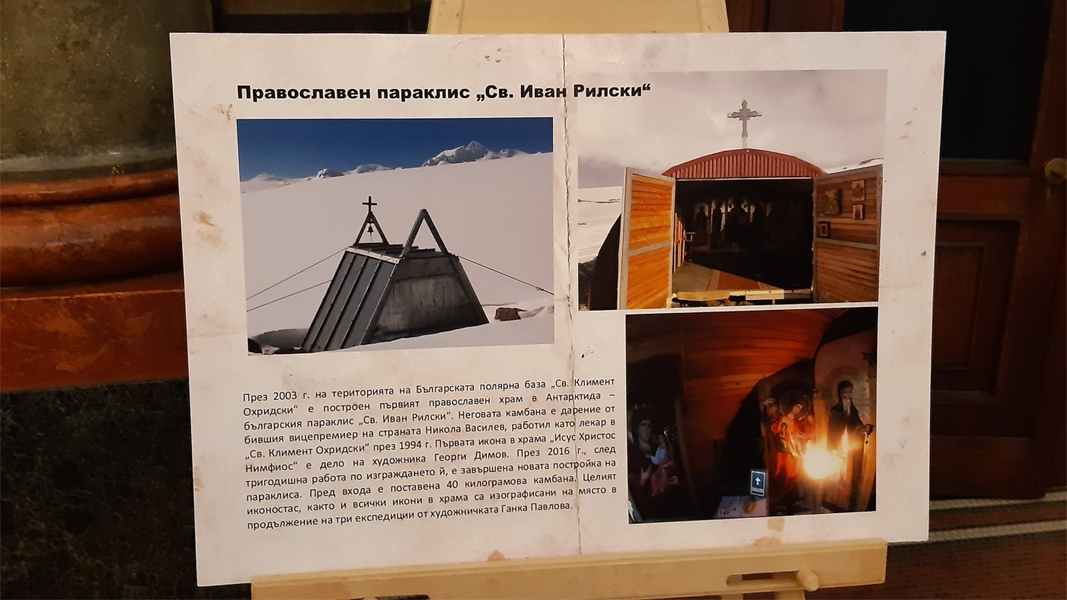
The 28th Bulgarian polar expedition is underway this very moment. The first group of Polar researchers arrived on Livingstone Island at the end of November, the second group leaves on 11 December, the third – on 6 January, 2020, and the last – on 20 January.
Here is Prof. Pimpirev with more about the 28th Bulgarian Polar expedition:
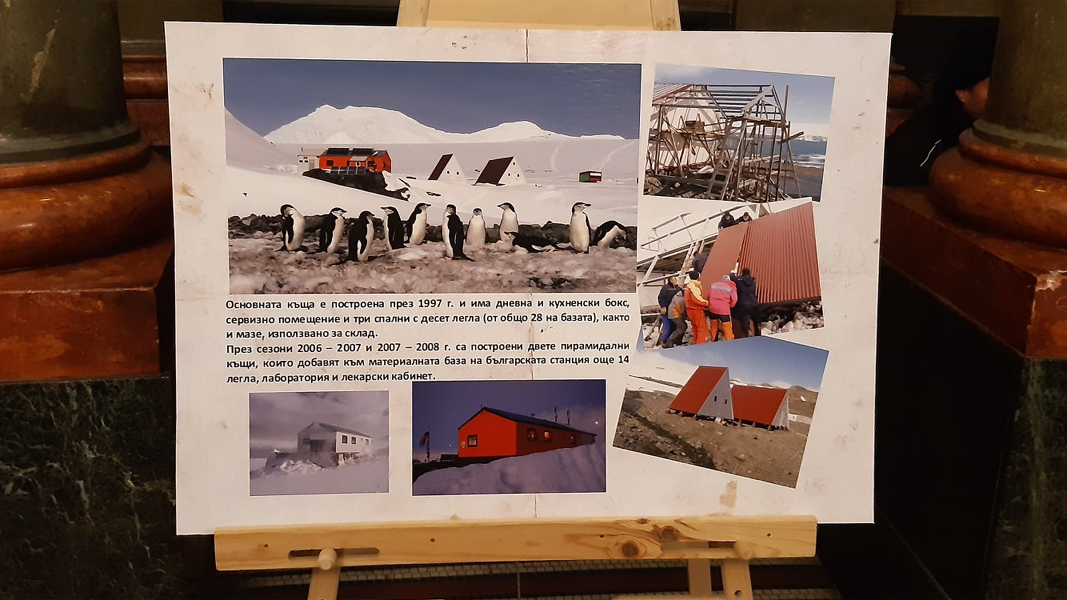
“The first group of 11 people, mostly logisticians – mechanics, engineers, sleigh drivers – have the task of preparing the base for the coming Polar season in which the focus will be on scientific research. This group includes only one scientist – Dimo Dimov – a geologist working on a project from the national Polar programme financed by the Ministry of Education and Science. We are obligated to the state and to the scientific community to build a science laboratory on the icy continent that will be the face Bulgarian science turns to the world.”
Scientists from more than 30 countries have been to the Bulgarian base. To be able to implement research projects properly they need a working science lab. Following a contest, architect Penka Stancheva’s team won the project for building a laboratory. It will have 4 rooms and will be used by biologists and researchers in the spheres of geology, geophysics, geomorphology, glaciology, seismology.
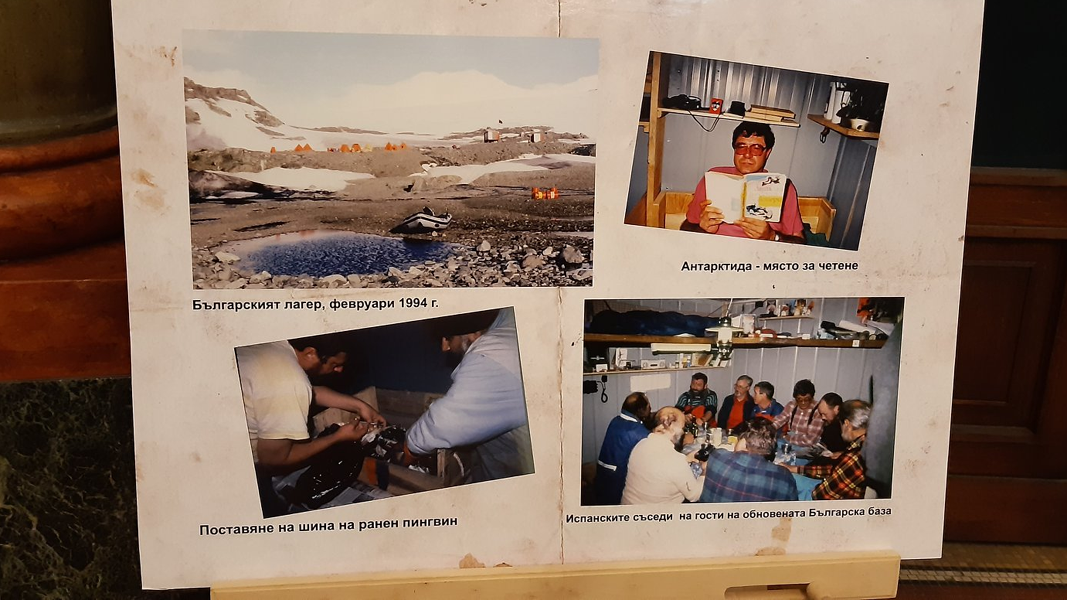
Prof. Pimpirev stated, as he has so many times, that in Antarctica the effect of climate change and warming is most palpable – a glacier which had for years, hindered the polar researchers from getting from one end of the island to the other has now receded from the coast by 15 metres. And this is just one piece of evidence proving that glaciers are melting and the sea level is rising.
Photos: facebook.com/Bulgarian-Antarctic-Institute
Artist Vanya Petkova from Kardzhali paints non-traditional icons, depicting saints on ostrich eggs . She started about 15 years ago with images of Jesus Christ and the Virgin Mary. The first egg she painted is still intact and is kept by her relative...
This year, Orthodox and Catholic Christians will celebrate the Resurrection of Christ togethe r. On the same date, the entire Christian world will turn its gaze to the empty tomb and will try, to the best of its ability, to empathize with the amazement..
A pink pelican has become a real attraction for the residents of Varna. Hundreds of people have spotted it in the area of the Marine Station in the coastal city and rushed to post his photos on social networks. The pelican is already known there by the..
Students block the entrances to the Radio and Television of Serbia For 12 days now, students and citizens have been blocking the entrances to..
Cambridge Day 2025 - one of the leading events for English language teachers in Southeast Europe - takes place today at the Balkan Hotel in Sofia. For..
A new book "Bulgarian communities in Albania and Kosovo. Socio-political processes and demographic consequences (1913-2024)" was..

+359 2 9336 661
